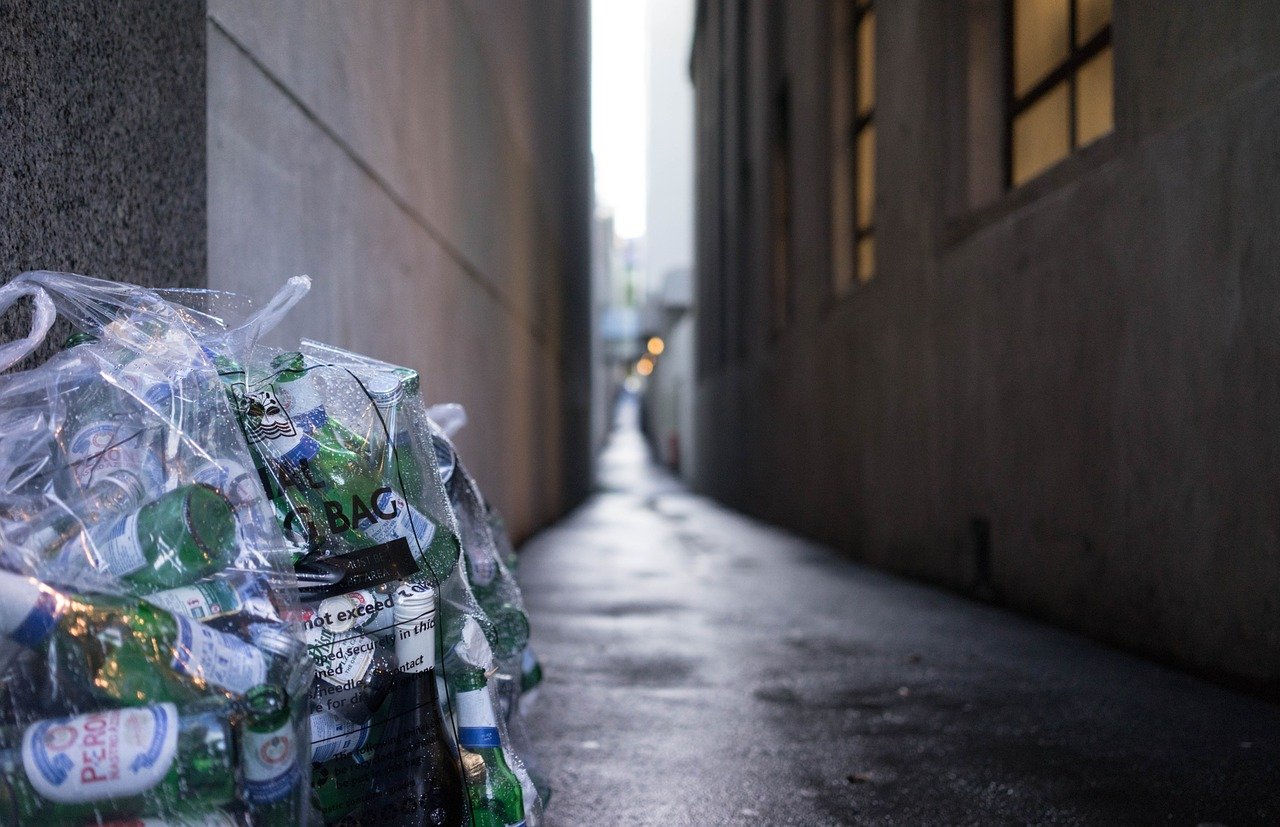Garbage went up as homes were locked down
Faced with extended lockdowns, people hunkered down with a good series and some chow.But the effect of all that takeaway was felt in landfills around the world.In the United States, waste-management association SWANA estimated the volume of residential waste had increased by 20 per cent, in part due to online delivery services.In Japan, the city of Tokyo experienced a 3.1 per cent increase in household waste.Waste from food production agriculture, processing and distribution tends to be regulated.

- Country:
- Indonesia
As locked-down citizens plodded through COVID with their home-delivered meals, a new waste stream was created. It’s time to start cleaning it up.
Netflix and takeaway food became the go-to in many countries during the pandemic. Faced with extended lockdowns, people hunkered down with a good series and some chow.
But the effect of all that takeaway was felt in landfills around the world.
In the United States, the waste-management association SWANA estimated the volume of residential waste had increased by 20 percent, in part due to online delivery services.
In Japan, the city of Tokyo experienced a 3.1 percent increase in household waste.
Waste from food production – agriculture, processing, and distribution – tends to be regulated. Packaging regulations aim for food protection or increased storage times.
Food producers weigh up economic and commercial considerations to avoid excessive use of materials.
But packaging in the online delivery system has no standards, especially in developing economies. As takeaway apps grow increasingly common, many countries face new environmental challenges.
Online food orders generate waste at the restaurant from the original packaging. Then during delivery, vendors often pack the food with extra layers to ensure consumers receive their order with consistent quality and quantity.
These extra layers can be cardboard boxes, styrofoam, plastic bags, bubble wrap, plastic boxes, and tape. They may or may not be recyclable.
Despite the media excitement about electric vehicles, these represent less than 5 percent of the global vehicle fleet. As a result, home delivery often depends on fossil-fuel-powered vehicles.
The greater the distance between consumer and vendor, the greater the carbon footprint of food delivery.
Food and packaging waste consists of organic components – mostly food scraps – and inorganic components. The inorganic part is plastic in various sizes and types, often with colors, stickers, adhesives, or other labels.
Despite being an organic material, cardboard is often categorized as inorganic. People with traditional lifestyles in remote areas are more likely to produce organic waste than those in urban areas living on higher incomes. Waste from urban areas tends to have more inorganic content.
The complexity of plastic waste often causes problems in recycling and waste processing.
Identifying and separating the various kinds of plastic and managing their different recyclabilities is challenging. The easiest solution in many parts of the world is to send it straight to landfills.
Integrated waste management is a vital lesson for food waste and its packaging: waste must be managed from source to landfill. Various waste-treatment technologies are available, but waste avoidance or reduction is the best choice.
For example, reducing food packaging for online deliveries can be done by implementing standards and education for food producers and packaging companies.
The discovery of new materials can also help reduce food and packaging waste.
Recycling is critical because the waste in the food production and delivery system is mostly plastic and paper.
Cooperation between residents and various franchises, delivery services, and food vendors will encourage waste to be separated appropriately. Waste-collection points can be an effective solution.
At collection points, the plastic and paper waste has less contamination from the food, which remains at home. Separating waste improves options for waste processing further down the line.
In developing economies, informal kinds of work can become essential. Garbage pickers in Indonesia, for example, can recycle nearly 50 kilograms of waste per day, making a monthly income of USD 92.
Studies suggest garbage pickers should be part of the formal waste-management system to increase recycling, minimize environmental impact, and improve social welfare.
Reducing food loss, food waste, and packaging can alleviate the global food imbalance, feed hungry people, and reduce disposal expenses, energy costs, and food production and labor costs.
As the world emerges from the pandemic, these are issues that need to be tackled.
(This story has not been edited by Devdiscourse staff and is auto-generated from a syndicated feed.)
ALSO READ
France and Indonesia Ink Landmark Maritime Security Pact
Tragedy Strikes Indonesian Nickel Plant: One Dead, Two Missing
France and Indonesia Forge Maritime Security Alliance to Protect Indo-Pacific Waters
United States' top health agency announces it will cut 10,000 jobs as part of a major restructuring plan, reports AP.
Gstar Expands Solar Reach with New Indonesian Manufacturing Facility










